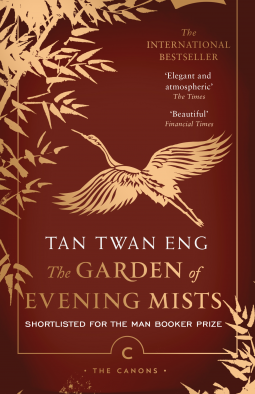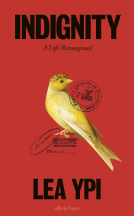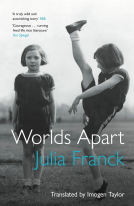
The Garden of Evening Mists
by Tan Twan Eng
This title was previously available on NetGalley and is now archived.
Send NetGalley books directly to your Kindle or Kindle app
1
To read on a Kindle or Kindle app, please add kindle@netgalley.com as an approved email address to receive files in your Amazon account. Click here for step-by-step instructions.
2
Also find your Kindle email address within your Amazon account, and enter it here.
Pub Date 4 Apr 2019 | Archive Date 4 Apr 2019
Canongate Books | Canongate Canons
Talking about this book? Use #Canons100 #NetGalley. More hashtag tips!
Description
Presenting our hundredth Canon - The Garden of Evening Mists. Expect to see widespread celebration throughout April and a huge online conversation as we celebrated the #Canons100 in all their glory. From Nan Shepherd to Yann Martel, Barack Obama to Margaret Atwood, the Canons are books without boundaries. Some are classics already, the rest will be soon.
THE INTERNATIONAL BESTSELLER
SHORTLISTED FOR THE MAN BOOKER PRIZE
WINNER OF THE MAN ASIAN LITERARY PRIZE WINNER OF THE WALTER SCOTT PRIZE
Teoh Yun Ling was seventeen years old when she first heard about Aritomo and the garden. But a war would come to Malaya, and a decade pass before she would travel to see him. A man of extraordinary skill and reputation, Aritomo was once the gardener for the Emperor of Japan, and now Yun Ling needs him. She needs him to help her build a memorial to her beloved sister, killed at the hands of the Japanese. She wants to learn everything Aritomo can teach her, and do her sister proud, but to do so she must also begin a journey into her own past, a past inextricably linked with the secrets of her troubled country.
A story of art, war, love and memory, The Garden of Evening Mists captures a dark moment in history with richness, power and incredible beauty.
Available Editions
| EDITION | Paperback |
| ISBN | 9781786893895 |
| PRICE | £8.99 (GBP) |
Average rating from 9 members
Featured Reviews
 Nick B, Reviewer
Nick B, Reviewer
The Garden Of Evening Mists tells the story of Yun Ling Teoj, a recently retired Malaysian High Court Judge, as she sets her affairs in order in her former home in the Cameron Highlands of Central Malaysia. As she faces up to her recent diagnosis of aphasia and dementia, she entertains a Japanese scholar who wants to study the drawings of Aritomo, the former imperial gardener under whom Ling was apprenticed.
What unfolds is a dense story of intrigue and power games. We see different powers struggle for control in Malaysia - the British, the Japanese, the Chinese - and the compromises that have to be made in order to survive. We see a struggle to create a national cultural identity in a newly independent Malaysia that is a patchwork of peoples. The national struggle is set into relief by the individual situations - Ling, who hates the Japanese because of the way she and her family had been treated in the POW camp, yet having an affair with Aritomo; Magnus, the South African tea magnate who has come through the war unscathed; Aritomo himself, who had left Japan before the war and sat it out in Malaysia.
The writing was great; detailed, descriptive, evocative. Whilst timelines jumped about, the story was coherent and the feeding of information was well timed. The characters felt real, complex. If there is a complaint then it is that the plot becomes just a little bit too intricate at the end. The ending does require some reappraising of the characters and their motives, which is fine, but the basic plot device that emerges is rather contrived. It spoils what would otherwise have been a nicely pitched, well told if unspectacular novel.
 Sarah C, Reviewer
Sarah C, Reviewer
This is a book about war and the impacts of war, and a book about Japanese gardens. It's very beautiful.
At one point, the classic Japanese garden is described as a series of experiences. As we pass through the garden, we move from one to the next, without necessarily seeing the whole thing at any stage. This book is a bit like that. :Layers are peeled away, stories are uncovered, each one leading to greater understanding.
It's set in Malaya, now Malasia, moving from the present to WWII and the post-war period. Yun Ling, our heroine and narrator, is reviewing her past, taking us to her experiences in a Japanese internment camp, and her post-war apprenticeship with a famous Japanese garden designer. Post war Malaya is a dangerous place, with communist guerilla groups kidnapping and assassinating politicians and prominent people, and with the British trying to decide how to get out of this country, having spectacularly let down the population during the war.
There is pain, and anger in this book, but also the meditative beauty of traditional Japanese pasttimes, and there are Japanese who also tell their stories of the horrors of war. It's a time and a place I know very little about, so the historical aspects were fascinating, but for me the best bit was the way people build relationships despite history and politics. It's beautifully written, too, and captures that time and place in a really meaningful way. Well worth a read.
Readers who liked this book also liked:
Agatha Christie
General Fiction (Adult), Historical Fiction, Mystery & Thrillers


















